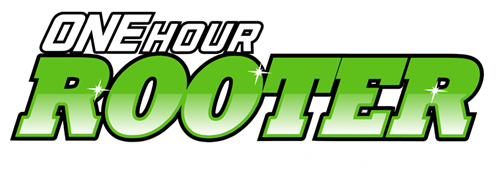What is a Sump Pump and Do I Need One?
A wet basement can cause all sorts of problems from water damage and mold to rust and rot to poor indoor air quality. Having a sump pump installed in your basement could help keep it dry, especially if your home prone to serious flooding. Read on to find out more about sump pumps and if one could help you.
What is a sump pump?
A sump pump is a small but important addition to your home. It helps prevent your basement from flooding after a hard rain, bad storm or the spring melt. It is designed to pump water and excess moisture out of your basement. It is installed in a sump pit, dug at the lowest point of your home, such as the basement or crawl space.
Most of the time it’s in standby mode waiting to fill with water. When the ground around your home becomes oversaturated, the excess ground water will be funneled towards your sump pit. It will begin to fill with water, which activates the pump. Water will then be pumped outside and away from the foundation of your home instead of seeping into your basement.
Types of Sump Pumps
There are two basic types of sump pumps.
Pedestal Sump Pump
Pedestal sump pumps sit above the basement floor and use a floating arm to measure the water level and activate when needed. Pedestal sump pumps are easily accessible and can be fairly easy to install and repair.
Submersible Sump Pump
Submersible sump pumps are installed below the basement floor and are activated through a pressure sensor. Since these are below ground, they can be trickier for install and repair.
Secondary Sump Pumps
A secondary sump pump is not just a second pump. They are designated backups that are battery powered in case your primary pump fails. If your secondary sump pump activates, you’ll want to call in an expert to repair or replace your primary pump.
Benefits of a Sump Pump
Even if your home isn’t prone to flooding, you may still benefit from having a sump pump installed in your home. Here are some of things a sump pump can do for you.
- Protects your home from basement flooding
- Prevents wall coverings and paint from peeling
- Protects basement appliances such as a washer, dryer, or freezer from corrosion
- Decreases mold, mildew, and fungus growth
- Protects your foundation
- Keeps your basement warmer and drier year-round
- May fulfil a requirement of your homeowners insurance policy
- Gives you peace of mind
Do I need a sump pump?
Having a sump pump is a bit like an insurance policy. The best-case scenario, you’ll never need it, but if you ever do, you’ll sure be glad you have it. Here are a few things to ask yourself if you are still on the fence about whether you need a sump pump or not.
Have you had water problems in the past?
Unless you’ve made major modifications to your old foundation, past flooding or high moisture levels in your basement, are a good indication that you’d benefit from a sump pump.
Do you live where it rains or snows a lot?
Location of your home and the area’s climate is another factor to consider when deciding whether to install a sump pump. Where we are in Minnesota, we can see a lot of snow in the winter and heavy rains in the spring when the ground is already saturated with the quickly melting snow, leading to seasonal flooding for many homes.
Is your home built on a plot that’s susceptible to flooding?
Think of the soil and location of your home relative to the surrounding area. Poor-draining soil, low-lying properties and properties on very flat plots with little drainage are more likely to experience water in their basements during heavy rains, snowstorms and spring runoff and will benefit from the addition of a sump pump.
Is your basement finished?
Even if you’ve never experienced basement flooding and you home isn’t considered a high-risk property, an affordable sump pump can be a great way to protect your underground living or storage space.
Do you already have a sump pump?
If there’s already one there, it’s a good indication that at some point, someone thought it should be there. If that’s the case, you’ll want test your sump pump to make sure it’s working properly. A submersible pump should last about 10 years and a pedestal one could last up to 30.
Schedule Your Sump Pump Installation Today
If you’ve decided that your Minneapolis area home could benefit from a sump pump, don’t wait any longer. Give the fully trained, licensed, and certified professional plumbers at One Hour Rooter a call. Whether you need a new sump pump installed, on old one replaced, or a secondary pump added, our local sump pump experts can guide you through the process and help you choose the right sump pump the first time to keep your home dry. Call our team at 612-354-8984 or contact us online to schedule an appointment.





